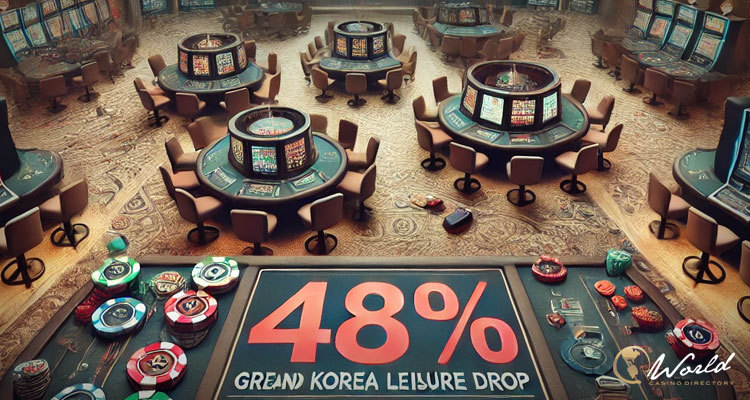Grand Korea Leisure (GKL), a prominent player in the foreigner-only casino market in South Korea, has encountered an unexpected sharp decline in its casino revenues, with a 48.1% decrease compared to the previous year, totaling KRW19.22 billion ($14.07 million) in July 2024. This significant downturn is indicative of broader challenges facing the gaming industry in the whole Southeastern Asia region.
A closer look at revenue streams:
GKL’s casino operations primarily hinge on table games, which traditionally are the major contributors to the overall casino’s revenue. In July, these games generated KRW16.56 billion ($12.12 million), reflecting a decline of 51.6% from the previous month and 40.4% from the previous year. Similarly, revenue from gaming machines, which usually supplement table game income, also decreased, falling by 4.3% monthly and 20% yearly to KRW2.66 billion ($1.95 million).
Despite the falling revenue figures, the total amount bet by customers, known as the casino drop, presented a contrasting scenario. It witnessed a rise of 2.6% month-over-month and 23.4% year-over-year, reaching KRW303.87 billion ($222.3 million) in July. This suggests that while fewer revenues were recorded, customer engagement in terms of betting remained high.
Operational and strategic adjustments:
According to Asia Gaming Brief, GKL operates under the Seven Luck brand and is managed as a quasi-market-based public corporation under the Korea Tourism Organization, affiliated with South Korea’s Ministry of Culture, Sports, and Tourism. This strategic alignment with national tourism goals provides a unique leverage, potentially cushioning the impact of economic downturns on GKL’s operations.
The company’s ability to adapt to these challenging economic conditions will be crucial for its future success. Innovations in gaming offerings, enhancements in customer service, and strategic marketing initiatives could play pivotal roles in navigating through these turbulent times. Additionally, GKL might need to reassess its operational strategies to better align with the changing market dynamics and customer preferences.
Long-term implications and industry outlook:
As GGRAsia reports, the financial health of Grand Korea Leisure not only affects its own future but also has broader implications for the regional gaming industry and the global market. Stakeholders, including investors, regulators, and competitors, are keenly observing how GKL and similar entities adapt to these challenges. The strategies adopted by GKL could set trends for operational resilience and innovation in the gaming sector.
GKL, operating under the Seven Luck brand, plays a pivotal role in enhancing South Korea’s tourism sector. As a foreigner-only casino, GKL is instrumental in attracting approximately 1.5 million visitors annually, significantly benefiting related industries such as aviation, accommodation, and retail.



